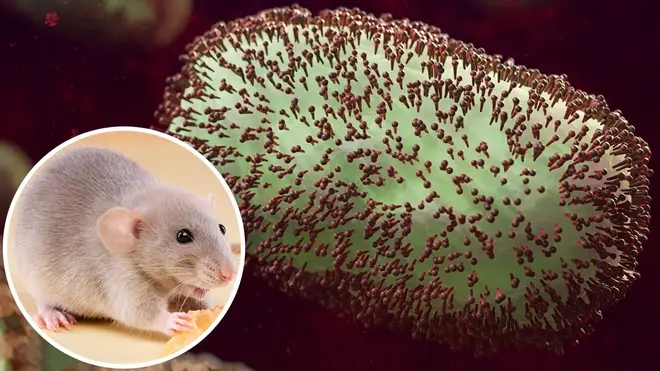
Henry Riley 7pm - 10pm
24 May 2022, 11:48 | Updated: 24 May 2022, 12:28

Experts fear monkeypox is capable of spreading to pets and that could push the virus into becoming endemic in Europe.
Transmission between humans and animals is "theoretically" possible and rodents and squirrels are likely to be even better hosts than people.
It is unknown how many animals are capable of contracting monkeypox, which saw cases triple to 57 in Britain on Monday.
But the European Centre for Disease Control said in a report: "There is a potential risk of human-to-animal transmission in Europe, therefore close intersectoral collaboration between human and veterinary public health authorities… is needed to manage exposed pets and prevent the disease from being transmitted in wildlife."
No cases have been reported in pets so far and the threat to the population from monkeypox is thought to be low."
Read more: Number of monkeypox cases in England triples to 56 as Scotland confirms first case
But it added: "Rodents, and particularly species of the family of Sciuridae (squirrels) are likely to be suitable hosts, more so than humans, and transmission from humans to (pet) animals is theoretically possible.
"Such a spill-over event could potentially lead to the virus establishing in European wildlife and the disease becoming an endemic zoonosis."
But it went on: "The probability of this spill-over event is very low."
The UK Health Security Agency has said that the virus does not normally pass easily between people, but it can transmit in close person-to-person contact or through contact with items used by someone infected with monkeypox.
That could include clothes, bedding or utensils.
However, it is usually "self-limiting" and most people recover in a few weeks.
Anyone with unusual rashes or lesions on a part of their body should contact NHS 111 or their local sexual health service.
Read more: High risk contacts of UK monkeypox cases urged to self-isolate for 3 weeks
A notable amount of cases have been detected in gay and bisexual men, and that community has been asked to be alert of symptoms.
People who have had direct unprotected contact with a case will be advised to self-isolate for 21 days, including not going into the workplace.
Supplies of a smallpox vaccine, Imvanex, have also been bought to be offered to close contacts of someone who has caught monkeypox.